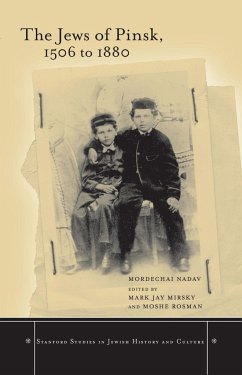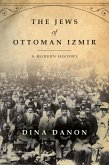"The Jews of Pinsk, 1506-1880" is the first part of a major scholarly project about a small city in Eastern Europe where Jews were a majority of the population from the end of the eighteenth century. Pinsk boasted both traditional rabbinic scholars and famous Hasidic figures, and over time became an international trade emporium, a center of the Jewish Enlightenment, a cradle of Zionism and the Jewish Labor movement, and a place where Orthodoxy struggled vigorously with modernity. The two volumes of Pinsk history were originally part of a literature created by Jews who survived the Holocaust and were determined to keep in memory a vital world that flourished for half a millennium. In this case, the results are extraordinary: no town of Eastern Europe has been described in such fascinating detail, invaluable to Jewish and non-Jewish historians alike.
Hinweis: Dieser Artikel kann nur an eine deutsche Lieferadresse ausgeliefert werden.
Hinweis: Dieser Artikel kann nur an eine deutsche Lieferadresse ausgeliefert werden.








